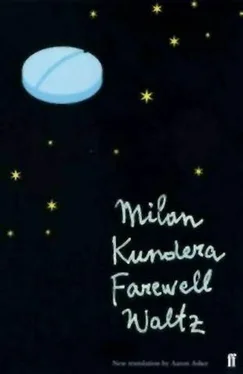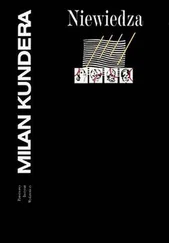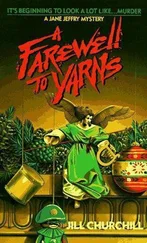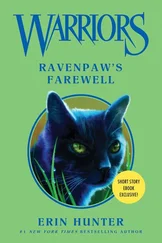"You're misunderstanding me," said Bertlef calmly. "I do not wish to send anyone to the electric chair. I only wish to exonerate Ruzena. Because suicide is the greatest sin. Even a life of suffering has a mysterious value. Even a life on the threshold of death is a thing of splendor. Anyone who has not looked death in the face does not know this, but I know it, Inspector, and that is why I tell you I will do everything I can to prove that this young woman is innocent.''
"I'm trying to do that too," said the inspector. "And actually there's still a third suspect. Mister Bertlef, an American businessman. He's admitted that the deceased spent the last night of her life with him. One might
object that this is something the murderer probably wouldn't voluntarily admit to us. But that objection doesn't pass scrutiny. Everyone at the concert yesterday evening saw Mister Bertlef sitting next to Ruzena and leaving with her. Mister Bertlef knows very well that under such circumstances it's better to admit something promptly rather than to be unmasked by others. Mister Bertlef claims that Nurse Ruzena had a very satisfying night. That shouldn't surprise us! Mister Bertlef is not only a fascinating man but above all he's an American businessman who has dollars and a passport with which you can travel all over the world. Ruzena is walled up in this place, looking in vain for a way out. She has a boyfriend who wants only to marry her, but he's just a young local repairman. If she marries him her fate would be sealed forever, she will never get out. She has nobody else, so she doesn't break up with him. But she avoids binding herself to him permanently because she doesn't want to give up her hopes. And then suddenly an exotic man with refined manners appears, and he turns her head. She believes that he'll marry her and that she'll permanently leave behind this forsaken corner of the world. At first she knows how to behave like a discreet mistress, but then she becomes more and more of a nuisance. She makes it clear that she will not give him up, and she starts to blackmail him. But Bertlef is married and, if I'm not mistaken, he loves his wife, who is the mother of his one-year-old boy and is expected to arrive here from America tomorrow. Bertlef wants at all costs to avoid a scandal. He knows that Ruzena always
carries a tube of tranquilizers, and he knows what the tablets look like. He has a lot of connections abroad, and he has a lot of money. For him it's no problem to have a poison tablet made that looks the same as Ruzenas medicine. In the course of that wonderful night, while his mistress was sleeping, he slipped the poison into the tube. I think, Mister Bertlef," the inspector concluded with a solemnly raised voice, "that you are the only person with a motive to murder the nurse and also the only person with the means. I ask you to confess."
Silence pervaded the room. The inspector looked Bertlef in the eye for a long while, and Bertlef returned the look with equal patience and silence. His face expressed neither amazement nor irritation. At last he said: "I am not surprised by your conclusion. Since you are incapable of finding the murderer, you have to find someone to assume reponsibility for the offense. It is one of the mysterious laws of life that the innocent must pay for the guilty. Please do arrest me."
The countryside was suffused with soft twilight. Jakub halted in a village only a few kilometers from the border crossing. He wished to prolong the last moments he would be spending in his country. He got out of the
car to take a little stroll down the village street.
It was not a pretty street. Lying around in front of the low-roofed houses were rolls of rusted wire, an old tractor wheel, pieces of scrap metal. It was a neglected, ugly village. Jakub told himself that the scattering of rusted wire was like a coarse word his native land was addressing to him by way of farewell. He walked to the end of the street to a small pond. The pond, neglected too, was covered with green scum. Some geese were splashing around at its edge, and a boy with a switch was trying to herd them away.
Jakub turned around to go back to his car. Just then he became aware of a little boy standing behind a window. Barely five years old, he was looking out the window toward the pond. Perhaps he was watching the geese, perhaps he was watching the boy flailing at the geese with his switch. He was behind the window, and Jakub could not take his eyes off him. What fascinated Jakub about the child's face were the eyeglasses. They were large eyeglasses, probably with thick lenses. The child's head was little and the eyeglasses were big. He was wearing them like a burden. He was wearing them like a fate. He was looking through the frames of his eyeglasses as if through a wire fence. Yes, he was wearing the frames as if they were a wire fence he would have to drag along with him all his life. And Jakub looked through the wire fence of the eyeglasses at the little boy's eyes, and he was suddenly filled with great sadness.
It was as sudden as the spread of water over countryside when riverbanks give way. It had been a long
time since Jakub had been sad. Many years. He had known only sourness, bitterness, but not sadness. And now it had assailed him, and he could not move.
He saw in front of him the child dressed in his wire fence, and he pitied that child and his whole country, reflecting that he had loved this country little and badly, and he was sad because of that bad and failed love.
And all at once the thought came to him that it was pride that had kept him from loving this country, pride in nobility, pride in high-mindedness, pride in scrupulousness; an insane pride that made him dislike his kind and detest them because he saw them as murderers. And once again he remembered that he had slipped poison into a stranger's medicine tube, and that he himself was a murderer. He was a murderer, and his pride was reduced to dust. He had become one of them. He was a brother of those distressing murderers.
The little boy with the big eyeglasses stood at the window as if petrified, his eyes still fixed on the pond. And Jakub realized that this child had done no harm, that he was not guilty of anything, and yet he had been born with bad eyes and would have them forever. And he reflected further that what he had held against others was something given, something they came into the world with and carried with them like a heavy wire fence. He reflected that he had no privileged right to high-mindedness and that the highest degree of high-mindedness is to love people even though they are murderers.
He thought once again of the pale-blue tablet, and
he told himself that he had slipped it into the disagreeable nurse's medicine tube as an apology; as an application to be admitted into their ranks; as a plea to be accepted by them even though he had always refused to be counted as one of them.
He quickly headed back to the car, opened the door, took the wheel, and set out again for the border. The day before he had thought that this would be a moment of relief. That he would be glad to be going away. That he would be leaving a place where he had been born by mistake, and where, in fact, he did not feel at home. But now he knew that he was leaving his only homeland and that he had no other.
"Don't be thrilled," said the inspector. "The glorious prison gates won't be opening for you to go through like Jesus Christ climbing Calvary. It never occurred to me that you could kill that young woman. I only accused you so you'd stop insisting so stubbornly that she was murdered."
"I am glad you were not serious about the accusation," said Bertlef in a conciliatory tone. "And you are right, it was not reasonable for me to try to obtain justice for Ruzena through you."
Читать дальше










